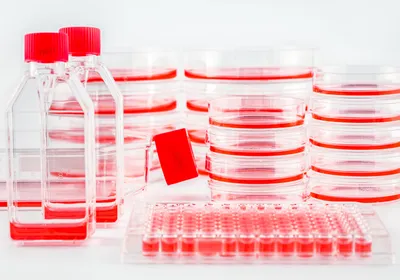 CASP9WIKIMEDIA, EMWOne limitation in the development of cell-based therapies is the growth of tumors that can result from transplantation of pluripotent cells. But in a study published today (March 2) in Stem Cell Reports, researchers in Japan report having successfully used an inducible caspase system to cause apoptosis in tumor cells derived from human induced pluripotent stem cells (iPSCs) transplanted into mice.
CASP9WIKIMEDIA, EMWOne limitation in the development of cell-based therapies is the growth of tumors that can result from transplantation of pluripotent cells. But in a study published today (March 2) in Stem Cell Reports, researchers in Japan report having successfully used an inducible caspase system to cause apoptosis in tumor cells derived from human induced pluripotent stem cells (iPSCs) transplanted into mice.
“This particular study—and other ones like it—is a really nice example of how . . . looking at the basic questions in science and in biology can lead to things that are very clinically relevant,” Lisa Bouchier-Hayes, who studies Caspase genes at the Baylor College of Medicine in Houston, Texas, and did not participate in the work, told The Scientist. “These first steps are really important,” she said.
“The use of a ‘suicide gene’ in stem cell–derived therapies is certainly an obvious safety modification that a number of groups have been pursuing,” said Cynthia Dunbar of the National Heart, Lung, and Blood Institute (NHLBI) in Bethesda, Maryland, who also was not involved in the study. “The idea is that whatever you use these cells for ...


















